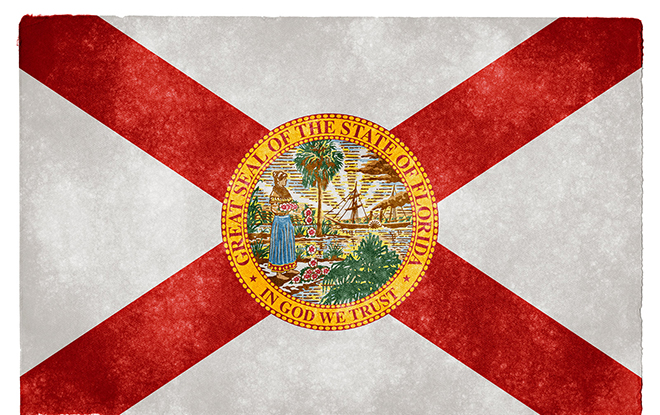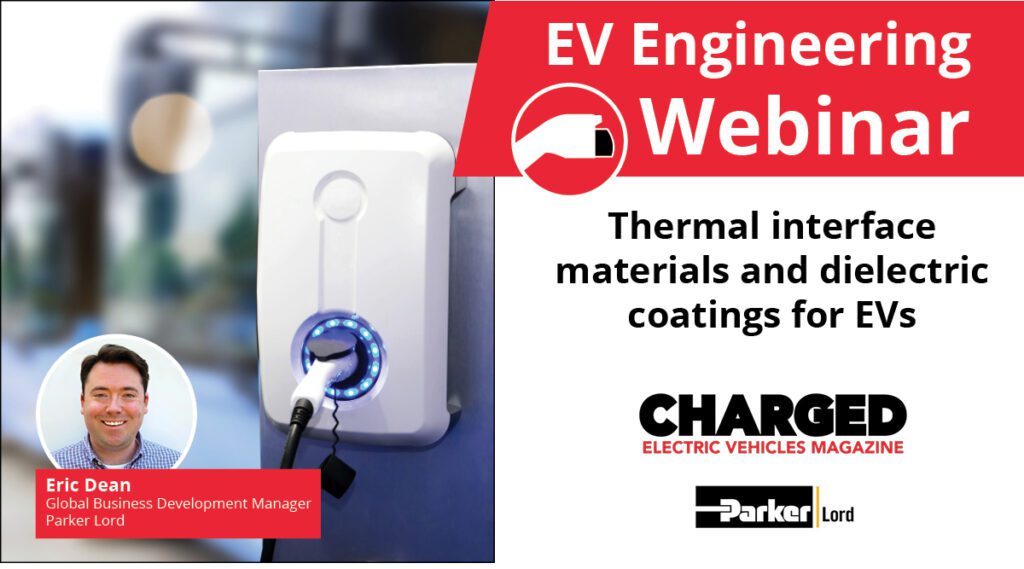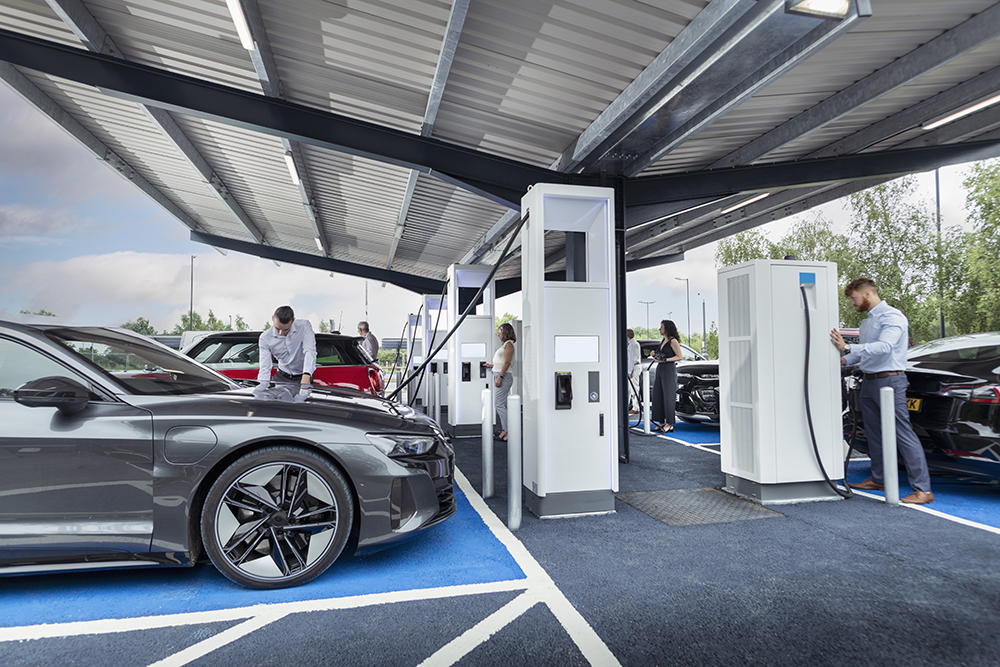The good news: Florida plans to invest $25 million from Volkswagen’s Dirty Diesel settlement in a network of highway charging stations. The (potentially) bad news: the state could choose to spend the rest of the settlement funds to replace existing diesel engines with newer, slightly cleaner, diesel engines.
As part of Volkswagen’s punishment for getting caught cheating on emissions tests, it has made $3 billion in grants available for individual US states. The money is theoretically supposed to be used to reduce nitrogen oxide pollution from diesel engines, but state governments have broad discretion as to how to spend it. So far, several states have decided to use the funds to buy more fossil fuel vehicles.
Florida is the last state to announce its plans for the settlement funds. Will it follow the lead of Arizona, Ohio, Illinois and Wisconsin, and double down on diesel? Or will it takes its cue from New Jersey and Virginia, both of which have invested VW funds in electrification projects? The answer is not yet clear, but the state Department of Environmental Protection (DEP) will be taking public comments on the issue until August 16 at 5 pm. Comments must be submitted via email to VWMitigation@FloridaDEP.gov.
First, let’s be positive and give credit where it’s due: Governor Ron DeSantis recently announced that the state would invest $25 million (15% of the state’s $166-million share of the settlement, the largest allowable amount) to install DC fast charging stations at all Florida Turnpike service plazas, and along other major highways. The state plans to bid out the installation projects to private firms, and the stations are to be available or under construction by the end of the year. A graphic provided at the Governor’s news conference showed the locations and numbers of the planned charging stations (thanks to Florida Tesla Enthusiasts).
“As electric cars become more prevalent on our roads and highways, the development of these charging stations is essential to the success of our ever-evolving transportation system,” said Governor DeSantis. “The addition of these stations will encourage Floridians to buy more electric vehicles, improve air quality, assist during disaster evacuations and ensure that Florida is prepared as electric vehicle technology continues to advance.”
So far, so good. However, there’s another 141 big ones to invest, and the state has not announced a final decision on how the funds will be used. The DEP has published a draft Beneficiary Mitigation Plan for public comment. It’s a wordy document, but contains no details of specific projects.
The plan envisions spending 15% of the funds on the Diesel Emissions Reduction Act (DERA), a federal program that was enacted in 2005 and is described as “a voluntary means to reduce diesel emissions from existing diesel engines that were not manufactured to meet more stringent post-2006 emission standards.” This may be anathema to EVangelists, but in some cases, replacing older diesels may be a cost-effective way to reduce emissions. As John Voelcker pointed out, currently there are few or no readily available electric options for some specialized vehicles such as garbage trucks and emergency vehicles.
The DEP’s plan estimates that 70% of the remaining funds will be allocated to “School, Transit and Shuttle Buses,” and speaks of “prioritizing projects that replace eligible units with electric-powered and/or alternative fueled units.” Of course, the term “alternative fueled units” is usually understood to include natural gas, propane, hydrogen and other combustion-engine vehicles, so Florida could end up spending a substantial part of this money on fuel burners. Furthermore, the state “has the discretion to adjust priorities and objectives as necessary and reserves the right to adjust this goal and spending plans at the state’s discretion.” So it’s conceivable (although, to be fair, probably not likely) that 85% of the VW money could be spent on new diesel vehicles.
It’s safe to assume that the lobbyists for diesel bus suppliers have been involved in the decision-making process from the beginning (although we must also point out that some of these firms are now building electric models as well).
As Proterra CEO Ryan Popple recently pointed out, “Diesel bus companies don’t really sell anything – procurements are on autopilot. Years ago, they put in place a contract and built a customer relationship. Fossil fuel maintains its market share by people not paying attention.”
Comments must be submitted to the Florida Department of Environmental Protection at VWMitigation@FloridaDEP.gov by August 16.
Editor’s note: This post has been updated to make it clear that the Florida Turnpike charging stations will be DC fast chargers, and to add Mr. Voelcker’s comments about specialized vehicles.
Sources: Creative Loafing, Florida Governor’s Office, Florida DEP









































































































